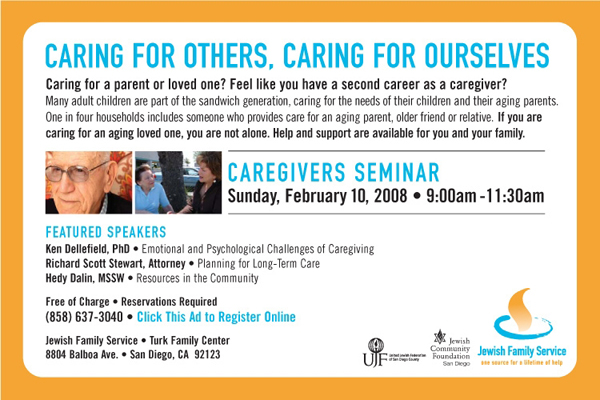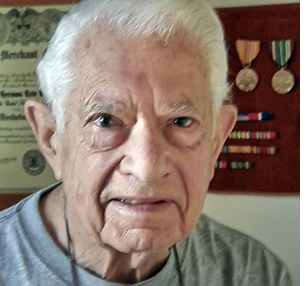

LETTER FROM JERUSALEM
Fatah to end ceasefire? Are they kidding?
By Ira Sharkansky
 JERUSALEM—"Wow!" is the only response possible to a headline from news.walla.co.il. "Fatah Threatens: We Will End the Cease Fire with Israel." JERUSALEM—"Wow!" is the only response possible to a headline from news.walla.co.il. "Fatah Threatens: We Will End the Cease Fire with Israel."
I had not noticed that there was a cease fire.
It did not seem like a cease fire when a gang of Palestinians, members of one of the several security forces supposedly directed
Ira Sharkansky
by Fatah President Mahmoud Abbas, killed two Israeli hikers three weeks ago. Nor is it a cease fire that brings the IDF into cities of the West Bank, presumably controlled by Fatah, to deal with people wanted for violence against Israeli civilians.
Further down in the same article was the news that Abbas was threatening to resign as President of the Palestine National Authority, and end the peace process if Israel did not stop attacking fellow Palestinians in Gaza.
Does this mean that Israel should accept more than 50 missiles per day fired at its civilians, and not take any action?
Yesterday there was a report that Abbas complained to Secretary of State Condoleezza Rice, and said that President Bush's dream of peace in the Middle East was in danger because of Israeli attacks. The report, from Palestinian sources, said that the Secretary of State would pressure the Israelis to stop the attacks.
Was the United States Government signing onto the Palestinian narrative, that they have a right to resist Israel, while Israel has no other rights other than to comply with Palestinian demands?
Not quite. Or at least it does not seem that way, unless there is a rebellion under way in the American State Department.
The State Department spokesperson indicated that Israel has a right to defend its citizens, and noted the number of rockets fired against Israelis in the previous 24 hours.
All this is yet another sign of a profound cultural differences between Israel and its Palestinian neighbors. Palestinians claim a monopoly of rights. The conflict is our fault for being here. They have a right to resist the conquest with violence. Why does Hamas have a right to attack Israel after the withdrawal from Gaza? Because Israelis are still occupying Israel, and have not gone into the sea.
The same day that one group of Palestinians was threatening to end a cease fire that does not exist, another group was threatening that Gilad Shalit, the Israeli soldier captured 18 months ago, would end up like Ron Arad, an Israeli airman captured in Lebanon 21 years ago. Arad has apparently died, but without leaving a body or notice of same.
Someone ought to remind the Palestinians that they are in danger of becoming a collective Ron Arad. They can disappear into history without achieving any national aspirations.
While Palestinians speak in hyperbole, Israel keeps trying to communicate with reason. The IDF counters violence directed at civilians with measured and moderate responses. It would be no problem to bombard Palestinian settlements in Gaza in response to every rocket attack against an Israeli town. Israeli weapons are more powerful and better aimed than what comes out of Palestinian metal shops. Whereas they have killed something like 10 civilians with their rockets in seven years, but make life miserable for 20,000 people with frequent warning sirens and missiles that make a lot of noise, Israeli artillery might kill thousands per hour.
The IDF does not do that. It targets individuals associated with attacks on Israel. There is collateral damage, insofar as the bad guys spend a lot of time mingled with family members, neighbors, and children of the streets who congregate to watch the action. Israeli soldiers have abandoned attacks when civilians were in the way or close by, but it does not always end neatly.
Will this continue?
Most likely.
Will it end the peace process?
Not much sign of a peace process, except in the speeches of George W. Bush and the efforts of Ehud Olmert.
Palestinian threats of ending a cease fire do not generate much emotion, or four letter words. "Wow" is the most that seems appropriate.
AMAZING STORIES OF JUDAISM
The mousetrap and the farm animals
By Rabbi Baruch Lederman
 SAN DIEGO—"Kol yisroel araivim zeh lazeh..." "Every Jew is responsible for every other Jew..." SAN DIEGO—"Kol yisroel araivim zeh lazeh..." "Every Jew is responsible for every other Jew..."
We have a responsibility as Jews to care for and about one another. The L-rd helps those who help others. This is crucial to our very existence as the following tale illustrates:
A mouse looked through the crack in the wall to see the farmer and his wife open a package. What food might this contain?" The mouse wondered - he was devastated to discover it was a mousetrap.
Retreating to the farmyard, the mouse proclaimed the warning. There is a mousetrap in the house! There is a mousetrap in the house!"
Rabbi Baruch Lederman
The chicken clucked and scratched, raised her head and said, "Mr. Mouse, I can tell this is a grave concern to you, but it is of no consequence to me. I cannot be bothered by it."
The mouse turned to the pig and told him, "There is a mousetrap in the house! There is a mousetrap in the house!"
The pig sympathized, but said, "I am so very sorry, Mr. Mouse, but there is nothing I can do about it but pray. Be assured you are in my prayers."
The mouse turned to the cow and said "There is a mousetrap in the house! There is a mousetrap in the house!"
The cow said, "Wow, Mr. Mouse. I'm sorry for you, but it's no skin off my nose."
So, the mouse returned to the house, head down and dejected, to face the farmer's mousetrap alone. That very night a sound was heard throughout the house -- like the sound of a mousetrap catching its prey. The farmer's wife rushed to see what was caught. In the darkness, she did not see it was a venomous snake whose tail the trap had caught. The snake bit the farmer's wife. The farmer rushed her to the hospital, and she returned home with a fever. Everyone knows you treat a fever with fresh chicken soup, so the farmer took his hatchet to the farmyard for the soup's main ingredient.
But his wife's sickness continued, so friends and neighbors came to sit with her around the clock. To feed them, the farmer butchered the pig.
The farmer's wife did not get well; she died. So many people came for her funeral; the farmer had the cow slaughtered to provide enough meat for all of them.
The mouse looked upon it all from his crack in the wall with great sadness.
So, the next time you hear someone is facing a problem and think it doesn't concern you, remember -- when one of us is threatened, we are all at risk.
We are all involved in this journey called life. We must keep an eye out for one another and make an extra effort to encourage one another.
Dedicated by Andy & Mazal Levin on the occasion of the fourth yahrtzeit of her mother Fara Eshaghian



TORAH ON ONE FOOT
The modern meaning for Tu B'Shevat
By Rabbi Leonard Rosenthal
 SAN DIEGO—The Talmud tells us that Tu B’Shevat, the 15th day of the Hebrew month of Shevat (Jan. 22 this year ) is the New Year of the Trees. Why do trees need their own New Year celebration? SAN DIEGO—The Talmud tells us that Tu B’Shevat, the 15th day of the Hebrew month of Shevat (Jan. 22 this year ) is the New Year of the Trees. Why do trees need their own New Year celebration?
Tu B’Shevat derives from the Torah law that forbids eating the fruit of a tree for the first three years of its life. Beginning in the fourth year, the fruit may be eaten and tithes taken and given to the Temple. A tree’s "birthday" is its first Tu B’Shevat, regardless of when it was planted. For example, a tree planted on the first of Shevat is considered to be in its second year of life after the 15th of Shevat.
Since the destruction of the Temple this law has not been in effect.
Rabbi Leonard Rosenthal
However, Tu B’Shevat is still commemorated as the "Jewish Arbor Day." We pay special attention to trees, their needs, and their products. When I was young, the emphasis of Tu B’Shevat was on reforesting Israel. Virtually every Jewish home had a Jewish National Fund (J.N.F.) blue box into which change was poured to buy trees in Israel.
Today, purchasing trees in Israel is still a central Tu B’Shevat custom. However, Tu B’Shevat is also used to focus greater attention on environmental issues. We teach about the needs of the earth upon which we live and the ways human beings have helped and hurt God’s creation.
It was very satisfying for me to visit Abraham Ratner Torah School classes at Tifereth Israel Synagogue on Wednesday to speak about Tu B’Shevat and find that our students were very much tuned into the holiday and it’s historical and contemporary meanings. They were also very aware and well informed as to the environmental challenges their generation faces. Many students spoke of the recycling and water conservation already done in their homes. They know that their future and the future of their children depends upon their and our actions today.
Before I left their classrooms I shared the following story with them:
Two farmers once argued over a disputed piece of land that lay between their two farms. Each farmer said it was his. After years of arguing they finally invited the rabbi over to adjudicate the dispute. After hearing their arguments the rabbi thought for a minute and said: "You each have a good case. The only way I know to solve it is to ask the land itself whom it belongs to."
With that, the rabbi bent down and put his ear to the ground. He finally arose and said: "My friends, I have asked the land whom it belongs to. The land says that it belongs to neither one of you. You belong to the land."
No matter how much we think we can control our environment, ultimately our environment controls us. As the Talmud says, if we do not take care of our earth today, there will be no one left to take care of it tomorrow.
Shabbat Shalom and Happy Tu B’Shevat,

A harrowing tale of death, survival at sea
By Gerry Greber
 LA JOLLA, California—Imagine that on your first venture out across the great seas of the world, your vessel is torpedoed and you spend the next 30 days fighting for your life, not knowing if anyone will ever rescue you. Such was the experience of Hank Rosen after his enlistment during World War II in the Merchant Marine Academy. LA JOLLA, California—Imagine that on your first venture out across the great seas of the world, your vessel is torpedoed and you spend the next 30 days fighting for your life, not knowing if anyone will ever rescue you. Such was the experience of Hank Rosen after his enlistment during World War II in the Merchant Marine Academy.
Rosen, 88, a former associate national director of the United Jewish Appeal, and author of Gallant Ship, Brave Men, shared his experiences Wednesday evening, Jan. 16, with the Men’s Club of Congregation Beth Israel.
After a three month indoctrination, cadets spent the next six months gaining practical experience out at sea, under the guidance of professional Merchant Marine officers. Rosen was assigned to the Liberty ship, the SS John
Gerry Greber
Drayton, which was loaded with Sherman tanks, six crates of A20 bombers, and “ammunition, ammunition, ammunition.”
Also on board were three other Merchant Marine cadets, one of them, Cadet Dietz, who also was Jewish. They both were assigned to deck duty and worked together. The other two cadets were assigned to other places on the ship. Rosen recalled wondering if being Jewish was the reason they were assigned together.
The ship went south to Guantanamo Bay, then through the Panama Canal, down the west coast of South America, around Cape Horn and then across the Atlantic. This circuitous route was taken because there were fewer submarines in that area. The John Drayton finally ended up in the Persian Gulf (Iran) where the cargo was unloaded and taken “on American built roads” to Russia. The shipment, destined for Stalingrad, helped stop the German advance.
 It was on the way home, on April 21, 1943, that the John Drayton was torpedoed, at night, by two Italian submarines. The captain ordered all to “abandon ship." The lifeboat Rosen was assigned to, #2, departed while he was getting some of his gear together. Therefore, he had to climb down a rope net to another lifeboat, #4 which was already in the water. While doing so his foot got tangled up and he found himself hanging in midair. Another crew member climbed up from the lifeboat and untangled him. The only other Jewish trainee cadet was also in that lifeboat. The John Drayton was later sunk by gunfire from both Italian subs. It was on the way home, on April 21, 1943, that the John Drayton was torpedoed, at night, by two Italian submarines. The captain ordered all to “abandon ship." The lifeboat Rosen was assigned to, #2, departed while he was getting some of his gear together. Therefore, he had to climb down a rope net to another lifeboat, #4 which was already in the water. While doing so his foot got tangled up and he found himself hanging in midair. Another crew member climbed up from the lifeboat and untangled him. The only other Jewish trainee cadet was also in that lifeboat. The John Drayton was later sunk by gunfire from both Italian subs.
That was just the beginning. There were 24 men in Lifeboat #4. After some discussion, Rosen
photo by Joe Nalven
persuaded them to raise the sail and head for the nearest land, about 300 miles away, since he had no idea of what kind of a message the radioman had sent out, but did have charts of the area. He said he now recognizes that this was not the best decision. Some of the other boats, including a life raft with the captain, remained in the vicinity and were rescued by other vessels within a shorter timeframe.
Lifeboat #4, on the other hand, encountered gale winds which stopped any progress for about eight days. One time the boat capsized and most of the stored canned food was lost.
During the 30 days at sea some of the men lost faith, claimed they “had enough,” and jumped overboard. Another thought he heard his wife calling and went overboard to find her, shouting “I’m coming”.
At one point it started to rain. The survivors removed their shirts and T-shirts and laid them out. When the clothing became soaked with rain they wrung them out over a container. This was the only way to assure drinking water.
The most horrible moment was when the son of a hog farmer from southern Missouri killed one of the other survivors with a hatchet he had on board. When this occurred some of the men came over to the body with cups and “scooped up his blood and drank it," Rosen said.
Later this same person started to call Rosen anti-Semitic names. Concerned for his own safety, Rosen from that time on stayed on the far side of the lifeboat. One night, when everyone was asleep, this individual drank all the water that was available in a container in the bottom of the boat. The next morning he was found dead from “drinking too much water”.
In the Merchant Marine as in the US military, if you are missing for 30 days a letter is sent to your family stating that you are “missing in action and presumed dead." After 30 days such a message was sent to Rosen’s family back in New York. His mother immediately took the letter to Rabbi Israel Miller in Kingsbridge Heights in the Bronx. He told her “everything will be all right” then changed Rosen's Hebrew name—in accordance with the belief that by so doing one might confuse the Angel of Death. This act is a common custom even today especially among those that are gravely ill
Finally after 30 days, Lifeboat #4 was spotted by a plane, which radioed aa Greek freighter came over and picked the survivors up. There were only five survivors, including both Jewish Merchant Mariners were among the survivors. They were taken to Durban, South Africa, where Rosen spent the next three months in a hospital.
Rosen, testifying in 2007 in behalf of a bill to extend veterans benefits to the Merchant Marine, said at the time of his rescue he weighed 97 pounds and suffered from exposure, malnutrition, dehydration, septic abrasions of the hands and feet, conjunctivitis in both eyes, shock and tachycardia, which has affected me since then.
Upon his discharge from the hospital he returned to the US Merchant Marine Academy, and after further study, passed a license exam, and graduated as an Ensign. He had his choice of any branch of the service, as an officer, but chose to remain with the U.S. Merchant Marine. He was awarded the combat ribbon with Star, the Merchant Marine Mariner’s medal, and the victory Medal of the Great Pacific War, by the Russian government. In addition, he received Battle Ribbons for the Atlantic, Pacific, Mediterranean, and Middle East. He retired from the US Merchant Marine as a Lieutenant Commander in 1945.
Rosen's book is available at Borders, Barnes & Noble, and Amazon.com. Profits go to the American Merchant Marine Museum.
SAN DIEGO JEWISH WORLD THE WEEK IN REVIEW
Carol Davis in San Diego: Globe scores 'KO' with In This Corner
Donald H. Harrison in San Diego: Half Russian story explores love and dance
Sheila Orysiek in San Diego: Autobiography of a blue checkered shirt
Norman Greene in San Diego: 2 mothers experience tragedy, resilience
Donald H. Harrison in San Diego: Speakers at citizenship ceremony glamorize U.S. history; gloss over mistakes of the past Reader reaction
Fred Reiss in Winchester, California: The clash of science and fundamentalism
Sheila Clapkin in Tarzana, California: Pilgrimage to Uman: Searching for absolution at Rabbi Nachman's grave
Donald H. Harrison in San Diego: Making Trouble will make you laugh
Donald H. Harrison in San Diego: The Jewish Americans: 3-part PBS series offers 'history commenting on history'
Alexa Katz in San Diego: Into the Wild: A movie that delivers its title
Gaby Maio in San Diego: A ride into San Diego Jewish history
David Strom in San Diego: PTSD also affected survivors of the Shoah
Monday, January 14, 2008
Dov Burt Levy in Salem, Massachusetts: Jewish "angles" in the presidential primaries
J. Zel Lurie in Delray Beach, Florida: Did Bush have a vision or just a dream?
Norman Manson in San Diego: Dreams in Torah—where are they today?
Sheila Orysiek in San Diego: How Fiddler on the Roof keeps his balance
< BACK TO TOP
|

